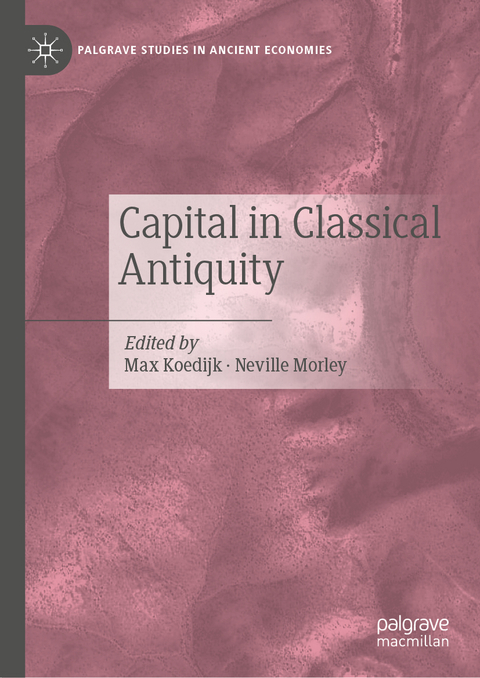
Capital in Classical Antiquity
Springer International Publishing (Verlag)
978-3-030-93833-8 (ISBN)
This book discusses the extent to which Thomas Piketty's work can offer a model for ancient economic history, both methodologically and politically. The book derives from a research workshop in Berlin in April 2018, which brought together a group of established and early career scholars to discuss the implications of Piketty's work and related themes for classical antiquity. Key questions reflected in the text include:d: How should we characterise the 'development' of the economy/economies of the classical Mediterranean, in relation to the role of 'capital' and the prevalence of inequality? How was wealth, both public and private, evaluated and managed? How much of the wealth of their society did the ancient 1% control - and is their dominance better understood in terms of the power of capital, or the role of predation and state capture? How far did certain ancient polities - above all the Greek city-states - succeed in placing limits on the power of the rich and integrating their interests with those of the masses? Did inequality increase between the height of the Roman Principate and late antiquity, as is often believed? This book will be valuable reading for academics and students working in economic history, ancient history, and other related fields.
lt;p> Max Koedijk has recently completed his PhD at the Ruhr-Universität Bochum, focusing on the exchange of property in the late Roman Republic. His research interests include real estate markets, incentive- and information-structures, and evolutionary models, especially relating to status-seeking behaviour.
Chapter 1. Introduction: Capital and Classical Antiquity (Max Koedijk and Neville Morley).- Chapter 2. Problems in the Long-Term Accumulation of Commercial and Financial Capital in Ancient Greece (Michael Leese).- Chapter 3. Inequality in the Peloponnesian War (Manu Dal Bo Manu Dal Borgo).- Chapter 4. Framing Capital: Xenophon's Economic Model and Social System (Sven Günther).- Chapter 5. Piketty's Dilemma: Taxation in Fourth Century Athens (Dorothea Rohde).- Chapter 6. Status as a Brake and Accelerant on Wealth Inequality in the Late Roman Republic (Max Koedijk).- Chapter 7. Rent Controls in the 40s BCE: housing costs, public intervention and inequality in the Roman World (Cristina Rosillo-López).- Chapter 8. Capital in the Roman Empire: the scope for Pikettian dynamics in an ancient agrarian economy (Myles Lavan and John Weisweiler).- Chapter 9. Money, Capital and Inequality in the Age of Augustus (Colin Elliott^ g? Evidence from Roman Egypt (Paul Kelly).- Chapter 11. Wealth, Inequality and Political Culture in the Cities of Roman Asia Minor, 1st to 3rd Centuries CE (Arjan Zuiderhoek).- Chapter 12. Oligarchy Ancient and Modern (David Singh Grewal).- Chapter 13. Beyond Capital (Kim Bowes).- Chapter 14. Piketty Among the Ancients: Capital and Beyond (Walter Scheidel).- Chapter 15. Afterword: Capital from Antiquity to the 21st Century (Thomas Piketty).
| Erscheinungsdatum | 28.07.2022 |
|---|---|
| Reihe/Serie | Palgrave Studies in Ancient Economies |
| Zusatzinfo | XIII, 383 p. 18 illus., 3 illus. in color. |
| Verlagsort | Cham |
| Sprache | englisch |
| Maße | 148 x 210 mm |
| Gewicht | 647 g |
| Themenwelt | Geschichte ► Teilgebiete der Geschichte ► Wirtschaftsgeschichte |
| Wirtschaft ► Allgemeines / Lexika | |
| Schlagworte | Ancient Economy • Capital • comparative history • Inequality • Wealth |
| ISBN-10 | 3-030-93833-6 / 3030938336 |
| ISBN-13 | 978-3-030-93833-8 / 9783030938338 |
| Zustand | Neuware |
| Haben Sie eine Frage zum Produkt? |
aus dem Bereich


